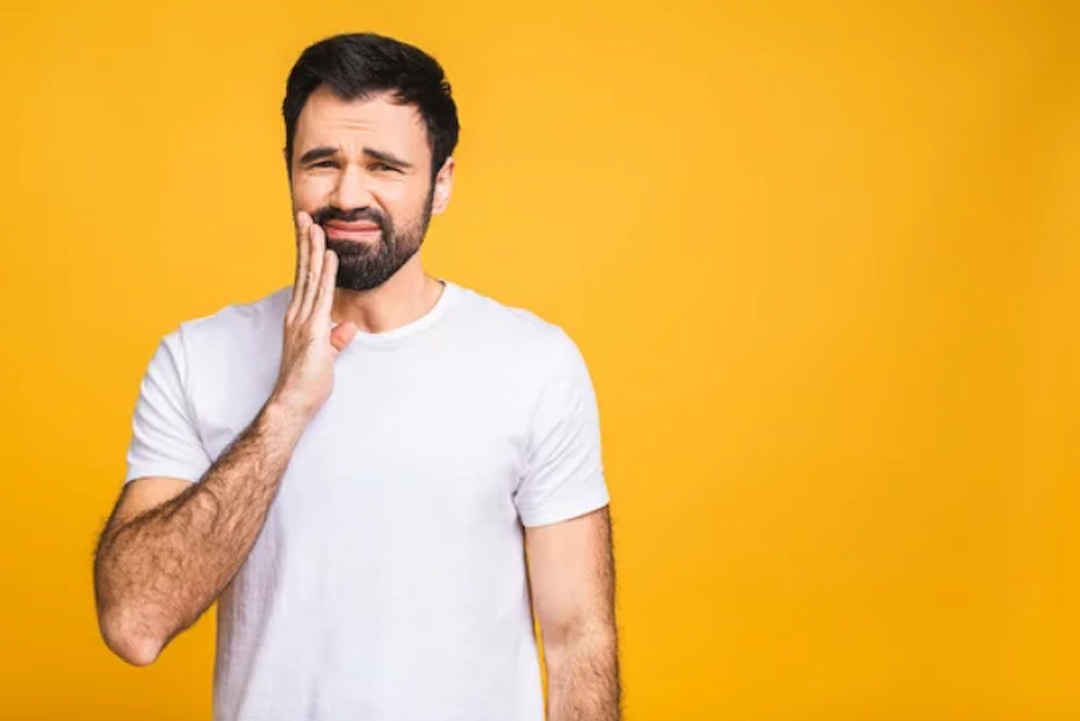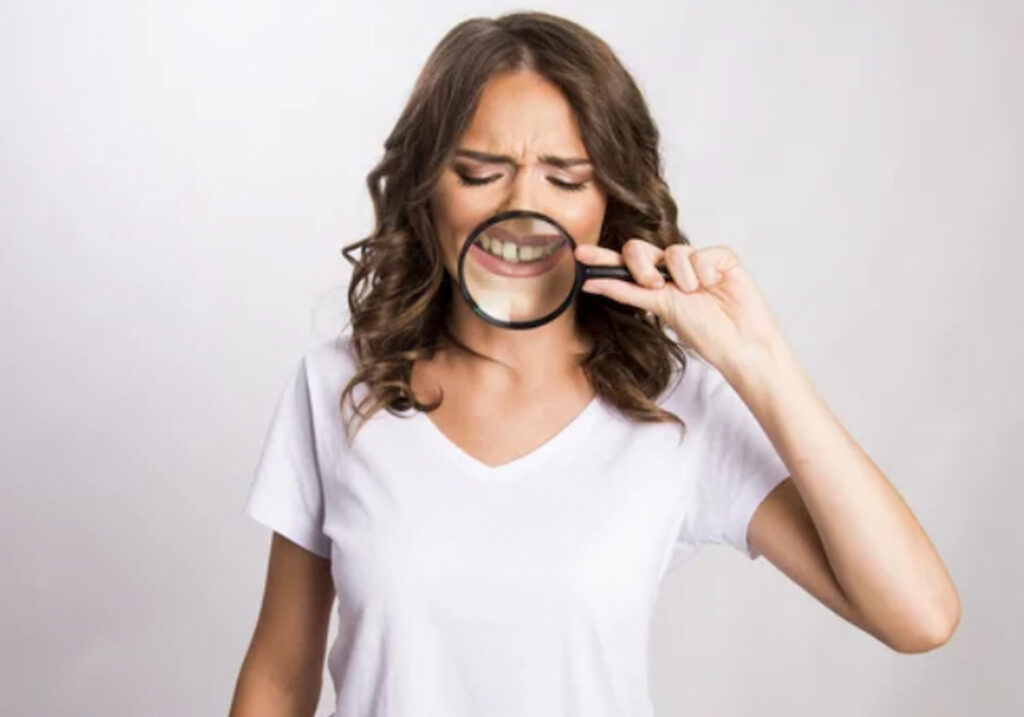
We all know we lose our teeth as babies, but then what? Is it natural to lose all your teeth as you age? What about when you are 40? Well, it isn’t normal to lose your teeth at all as you age, and age isn’t even considered a factor for teeth falling out or decaying.
While it isn’t necessarily normal that your teeth fall out in your 40s, it also isn’t all that unusual. Up to 69% of people lose at least one tooth due to decay by the time they are 44. That isn’t including all the other ways people can lose teeth.
Keep reading to learn about why people may lose their teeth at a younger age, as well as what you can do to prevent further tooth loss in the future.
Is It Common To Lose Teeth In Your 40s?
Studies by the CDC show that in America alone, around 69% of people have lost at least one tooth once they hit the age range of 35 to 44 simply due to decay. That doesn’t include any other reason why someone might lose a tooth, such as an injury, disease, or a weakened jawbone.
While it shouldn’t happen, adults don’t naturally lose their teeth. It is entirely possible that an adult can keep all of their teeth until they pass away. However, due to numerous reasons, that isn’t often the case.
So though it isn’t supposed to happen, it also isn’t uncommon for people to find their teeth falling out, even in their 40s.
In fact, doctors and dentists are now using tooth loss to show signs of other issues, as when you are sick or missing key nutrients, it is often your teeth that first suffer from problems. If someone finds themselves losing teeth, it may be due to an underlying health condition or a warning that you are not getting the vitamins and minerals you need for basic survival.

Why Might I Lose My Teeth In My 40s?
There are many, many reasons why one might start to lose teeth in their 40s, or at any age. While some of these don’t directly lead to tooth loss, they can cause harm to the gums or decay in the teeth which leads to degradation and loosening of teeth.
- Smoking can damage both the teeth and the gums. Mostly, though, it can lead to gum disease and a buildup of tartar and plaque due to an increased amount of germs in the mouth.
- Periodontal disease. Also known as gum disease, Periodontal disease severely infects the soft tissue of the gum. Once serious enough, it can destroy the roots and bones that support your teeth. It may start with loosened teeth and lead to tooth loss. It is pretty common and fairly preventable.
- Other health problems. Many dentists see your teeth as a gateway to your body’s health. If you are sick or unhealthy, it is generally your teeth that will suffer first. Some examples are diabetes, osteomyelitis, and autoimmune diseases.
- Osteoporosis in people under 50 isn’t nearly as common, but it can occur at any age. Osteoporosis is a disease that causes a loss in bone density. It leads to a weakening jaw that is unable to support the teeth anymore.
- Poor dental care. If you don’t practice brushing and flossing, you may find yourself with teeth that fall out due to decay. Regular brushing, flossing, and dentist visits can help prevent this issue.
- Cancer and cancer treatments, especially when around the throat and mouth, can weaken the bones in your jaw and cause teeth to fall out.
- Lost a tooth previously. Teeth and the jaw are heavily dependent on teeth already in the mouth. The jaw needs the weight of teeth to remain strong. If you end up losing teeth and don’t get them replaced, you may find that your jaw isn’t strong enough to support the remaining teeth. Also, the remaining teeth can shift, causing large gaps where food can be caught.
- Physical stress can manifest in the mouth. It may start with an unconscious grinding and lead to weakened or injured teeth.
- Teeth can be lost due to trauma. Perhaps you fell down the stairs or got hit in the face with a baseball. Less commonly realized as trauma is when you use your teeth to rip open bags or hold things as it can put too much pressure and unusual acts on them.
These conditions above aren’t only limited to your 40s. No matter your age, you may find that your teeth are falling out or becoming loose. Working to reduce stress and take care of your teeth no matter what else is happening is key.
With so many tools out there to help keep your teeth clean and in their best condition, there is no excuse for you to not do at least the bare minimum of brushing twice a day and flossing at least once.

How Do I Stop More Teeth From Falling Out?
The first step is to take care of your teeth. Make sure you take the remainders of your teeth and brush them twice a day for two minutes in gentle circular movements. It is also a good idea to floss and use mouthwash at least once a day.
By doing this, you are taking care of your teeth in the right way and are working to keep the rest healthy. This should help reduce the chances of more teeth falling out.
You may also want to look at getting implants of some sort. As we mentioned above, your teeth can start doing poorly if one goes missing. Not only does it weaken the jaw, but it also causes your remaining teeth to shift to try and fill in the gaps.
This can lead to big pockets between your teeth where food can get stuck and start rotting away your teeth. Getting an implant as a replacement for the lost tooth can help you to keep the rest of them where they should be and prevent any weakening of the jaw.
Can I Get Dental Implants If I Lose My Teeth In My 40s?
Yes, you can get dental implants if you lose one or more teeth in your 40s. Traditionally, implants were done by screwing into the jawbone. However, more recently, they’ve also made it an option to drill into the cheekbone. That way, if you’ve faced some degradation of the jawbone and were unable to get implants previously, you may now be able to.
Whether you have lost a single tooth or a set of teeth, there are options for you. If you have lost a large number of teeth and the ones that are left aren’t looking good, you may even find dentures to be an option.
No matter what happened with your teeth, or how many you are missing, there are options out there for you.
However, there is no age limit on when you can get dental implants. Any time you are missing a tooth or set of teeth, you can get implants. Not only does this help you feel good and confident, but you can also keep the jaw from deteriorating, or deteriorating more if that is the case.

Conclusion
If you find yourself losing teeth into adulthood, don’t feel bad. There are many reasons why someone may lose their teeth, but age isn’t a factor once you lose your baby teeth. Instead, things like oral health, stress, sickness, and diseases can all impact how your teeth do and whether they fall out.
By taking care of yourself and your teeth, you are much more likely to have teeth that last longer and are much healthier. Brushing, flossing, and visiting a dentist are all great options.

